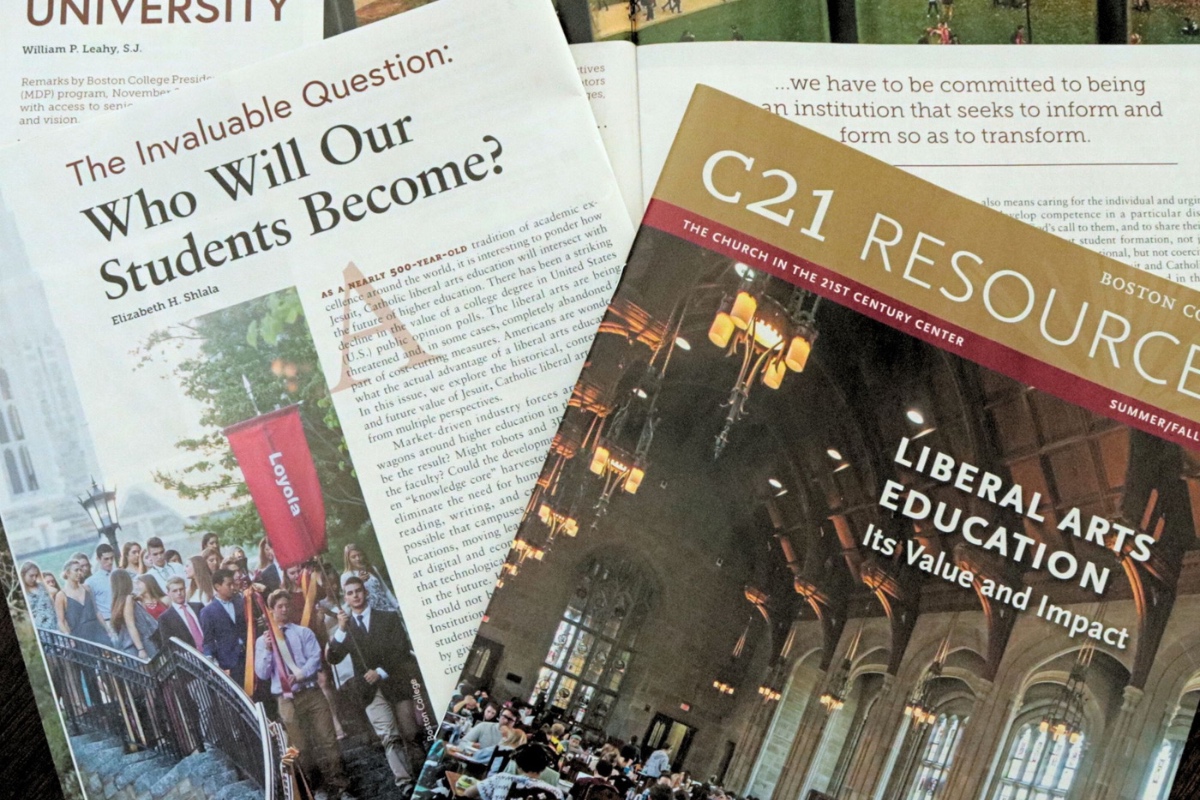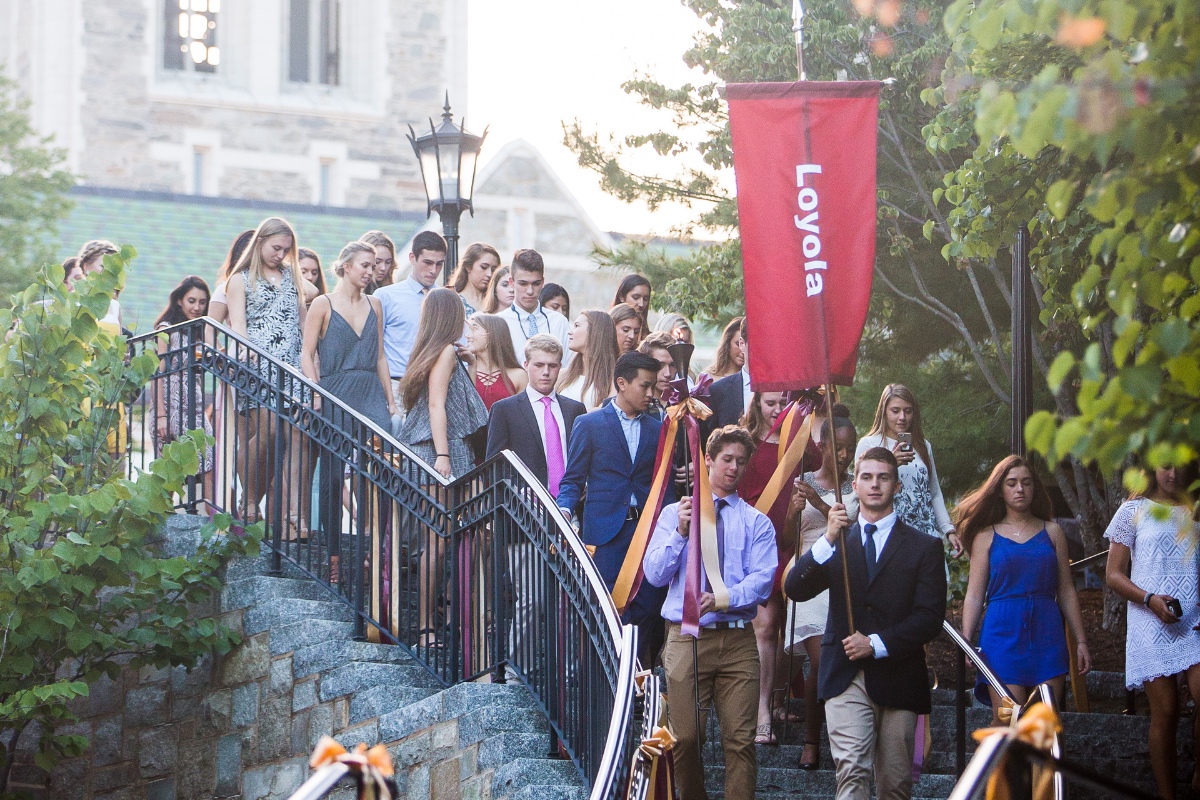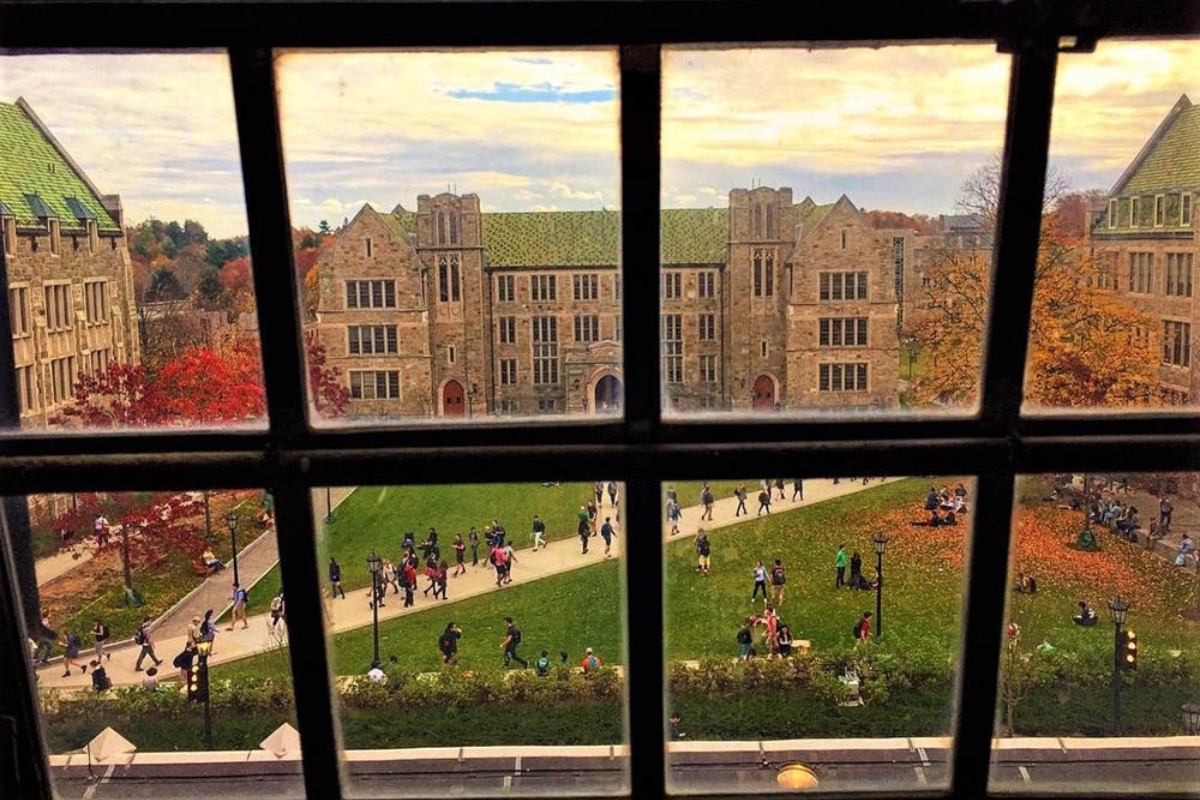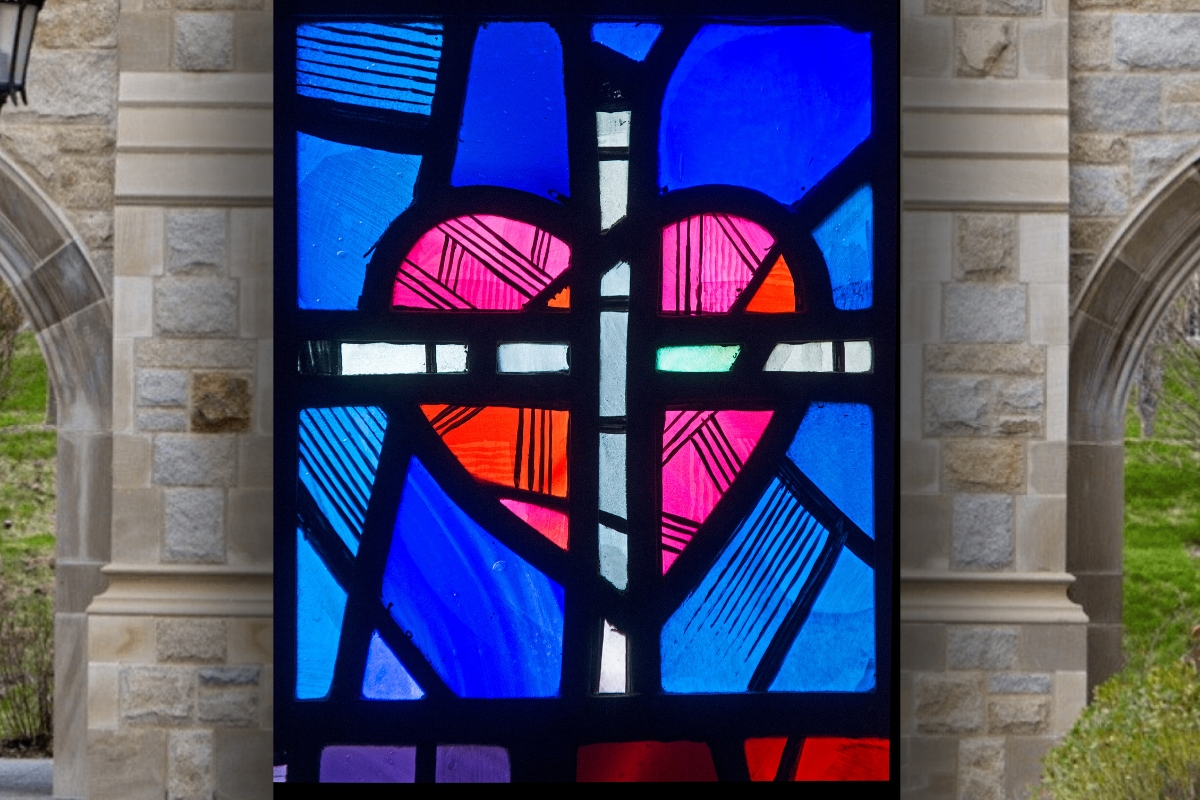As a Boston College (BC) graduate, faculty member, and parent of young adults who have attended Jesuit, Catholic schools—including BC—I have a unique perspective on the value of this enterprise and fervently believe the education we provide has never been more valuable.
The headwinds facing higher education are real: declining public confidence, climbing costs, deep polarization, and artificial intelligence are poised to change the way we teach and learn. And students have never had more distractions that can derail and desensitize them from what we might want them to think about. The constant inundation of electronic messages and their heightened degrees of anxiety make teaching far different than it was a mere decade ago. All of these factors contribute to why many question whether college is worth it.
As I contemplate the value from varied perspectives, my first thought is that the word value implies that something can be measured. I am unsure if an education—especially a Jesuit, Catholic education—can be measured in a conventional manner via a cost-benefit analysis. Some things in life, such as love, simply cannot be quantified. My view is that value cannot be determined when a life is transformed in powerful ways, as happens at Boston College.
STUDENT/ALUMNUS
As a BC graduate, I first experienced the transformative impact of a Jesuit education as a teenager. My first Jesuit teacher told us that he was “old school” and that he would be tough, yet we should know that “discipline was actually love in disguise.” Another told us that we needed to attend to our minds, bodies, and souls, and that if we didn’t take ourselves seriously, no one else would. A third told us that a good life should include service to others, and that being men and women with and for others was the goal—our education was not for us to hoard and hold on to.
As a young person, hearing these ideas kindled a sense of idealism within me. Sure, we learned math, science, philosophy, and economics, yet, alongside our learning were constant reminders to contemplate how we could make a positive impact on the common good. Ideas like these made it clear that we were here for important reasons—at BC and on earth. The ideas and moral imperatives steered and shaped us to believe that important work was within our grasp if we committed to giving our education away and if we worked hard and prayed even harder.
PARENT
As a parent, I have witnessed the transformative impact of BC’s formative, whole person education upon my children. Rigorous academic training and skill development have been critical, yet when asked to describe their time here, my young-adult children always start by reflecting on the people and their relationships. They talk not only about their friends but also those they met on faith-based service trips, on 48 Hours, Jamaica Magis, Kairos retreats, and in the Campus School Buddy Program, where BC undergraduate volunteers work with children and young adults who have intellectual and developmental disabilities.
Such programming being integrated into one’s education tells students that their faith formation and service is central to life. Programs like these—which steer students into loving relationships with others—put them into direct contact with God (consciously or not). Opportunities like these were precisely what we hoped our children would engage in while at Boston College. Reflection, discernment, and service-learning are not adjuncts to one’s education here—they are central and they nurture and cultivate within our students an integrated perspective that shapes whole people.
“Alongside our learning were constant reminders to contemplate how we could make a positive impact on the common good.”
FACULTY
The influence of my BC education shaped my career trajectory. I was drawn back to Boston College to teach because I sensed a call to return to my alma mater, where I could play a small part in the formation of our students just as many great teachers had done for me. I understood the power of a BC education and wanted to share it with others.
Now, as a faculty member, I am deeply inspired by a statement from Peter Hans-Kolvenbach, S.J., that success for Jesuit universities “lies in who our students become.” This is a high call, especially given the headwinds. Yet, I have witnessed the transformative impact of a Jesuit education on thousands of students. And I join hundreds of colleagues who similarly believe that teaching at BC requires far more than passing on information and prodding students to seek truth.
Inside and outside of the classroom, we focus on undergraduates being at formative stages in which they are wondering about their roles in the world. While they wonder and daydream about their futures, it is our responsibility to encourage contemplation about what really matters and to push students to envision and discern career paths that will allow them to use their gifts and talents for the benefit of others—while serving in professional roles that are genuinely rewarding. Making connections between the curriculum and a larger interdisciplinary landscape helps their learning become more meaningful.
Formative and “whole person” education means that learning is not an end but a beginning—an invitation to use knowledge to help advance the common good. As the Boston College theologian Thomas Groome has written, the deep “spiritual roots of our institution and our curriculum cannot be separate from our pedagogical approach.” Integrating Ignatian principles of whole person education, social justice, and intellectual, social, and spiritual experiences leads to much deeper formative experiences and supports our mission of guiding students as they contemplate their “way of proceeding” and discern what they will do long after they depart our campus to help solve the world’s most urgent problems.
Thomas Wesner ‘89, Ed.D. ‘07, is professor of the practice in the Carroll School of Management (CSOM) at Boston College and also serves as director of CSOM’s Summer Management Catalyst Program.
Learn about Boston College's Catalyst Program.
Discover Boston College's opportunities for service work through the Volunteer & Service Learning Center and Campus Ministry's Service Immersion programs.
Read about the life and leadership of Peter-Hans Kolvenbach, S.J., (1928–2016) 29th Superior General of the Society of Jesus.
Learn more about Fr. Kolvenbach's influence and thought regarding Jesuit education:
— Fr. Kolvenbach's speech from "Assembly '89," the 1989 gathering celebrating 200 years of Jesuit education in the United States
— "Commitment to Justice in Jesuit Higher Education," Fr. Kolvenbach's October, 2000, contribution to The Santa Clara Lectures.
Explore Professor Thomas Groome's What Makes Education Catholic: Spiritual Foundations (Orbis, 2021).







